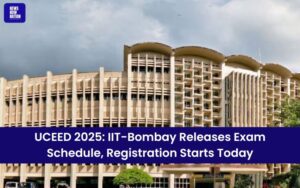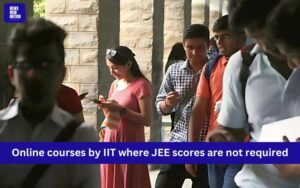
In a bold move challenging the status quo, a recent Public Interest Litigation (PIL) filed in the Supreme Court has brought to light the contentious issue of the duration of the Bachelor of Law (LLB) course. Advocating for a paradigm shift from the traditional 5-year LLB program to a more streamlined 3-year course directly after completing high school, the PIL raises fundamental questions about the accessibility, practicality, and financial burden associated with legal education in India.
The PIL, spearheaded by Advocate Ashwini Upadhyay, contends that the current 5-year LLB course duration, comprising 10 semesters, is not only unreasonable but also arbitrary and irrational. It argues that students are capable of covering 15-20 subjects in 3 years (6 semesters), making the extended duration of the LLB course unnecessary and burdensome. This viewpoint resonates with the constitutional principles enshrined in Articles 14 and 21, which emphasize equality before the law and the right to life and personal liberty, respectively.
One of the primary concerns highlighted in the PIL is the financial strain imposed on students pursuing the 5-year LLB course. The exorbitant course fees coupled with the extended duration lead to a significant financial burden, limiting access to legal education for many aspiring students, particularly those from lower-income backgrounds. By advocating for a shorter and more efficient 3-year LLB course post-12th standard, the PIL seeks to alleviate this financial barrier and make legal education more accessible to a wider spectrum of students.
Moreover, the PIL emphasizes the loss of valuable time experienced by students enrolled in the 5-year LLB program. The prolonged duration not only delays their entry into the legal profession but also hinders opportunities for gaining practical experience, pursuing higher education, or preparing for judicial exams. By condensing the LLB course into 3 years, students would have the flexibility to explore various avenues within the legal field more effectively and efficiently.
The PIL draws attention to notable examples of legal luminaries who commenced their legal careers at a young age. Citing the achievements of late stalwarts like Ram Jethmalani, who started practicing law at 18, and Fali S Nariman, who completed his law degree at 21, the petitioner underscores the potential for young advocates to excel if provided with an early entry into legal education and practice.
In addition to the individual benefits for students, the PIL also raises broader concerns about the overall structure and efficacy of legal education in India. It questions the necessity of a prolonged duration for obtaining a Bachelor of Law degree, especially when other undergraduate degree programs, such as Bachelor of Arts, Bachelor of Commerce, and Bachelor of Science, are completed in 3 years post-12th standard. The PIL advocates for a more balanced and efficient approach to legal education, focusing on quality education while addressing the practical needs and aspirations of students.
The PIL’s significance extends beyond a mere legal challenge; it represents a call for systemic reform in the realm of legal education. A favorable decision from the Supreme Court in support of the 3-year LLB course post-12th standard could mark a transformative moment, reshaping the landscape of legal education in India. It would not only democratize access to legal education but also empower a new generation of legal professionals to thrive and contribute meaningfully to the legal fraternity.
PIL’s advocacy for a 3-year LLB course post-12th standard reflects a larger discourse on innovation, accessibility, and inclusivity in legal education. It prompts us to reevaluate existing norms and strive for a legal education system that is not only rigorous and intellectually stimulating but also equitable and responsive to the evolving needs of students and society at large.










